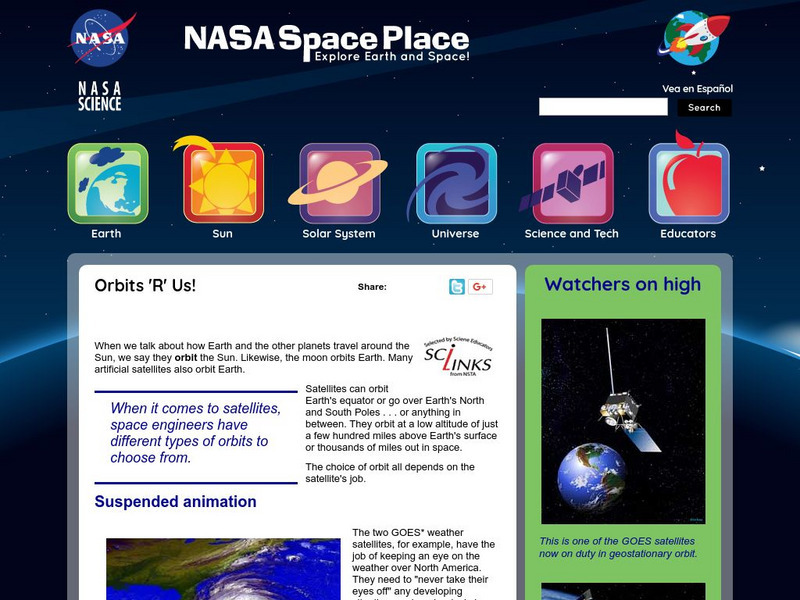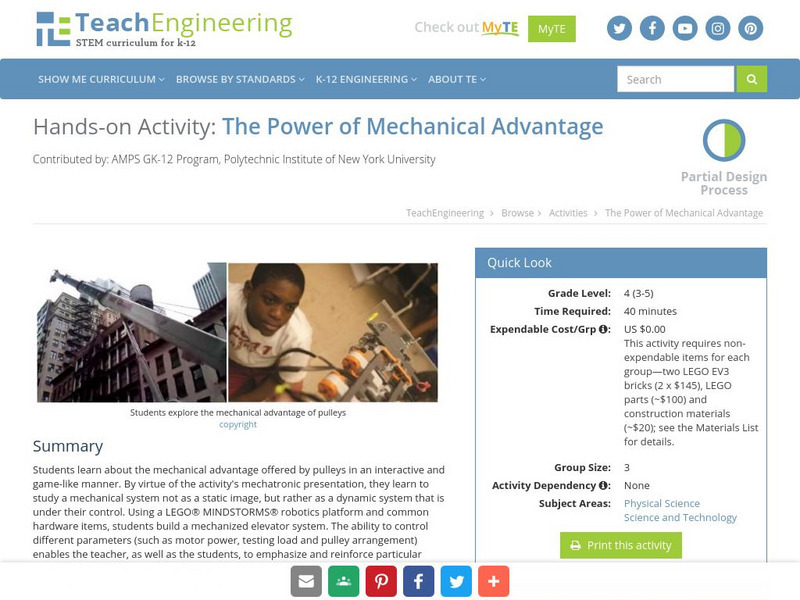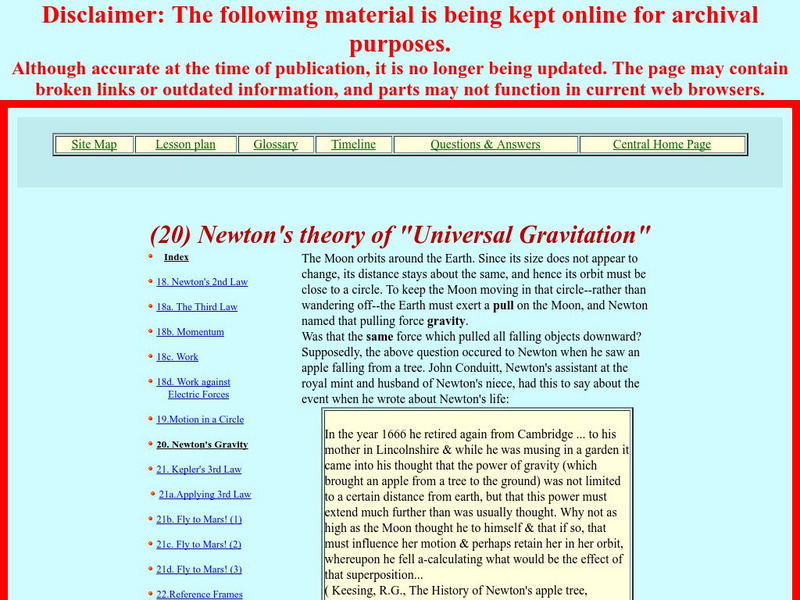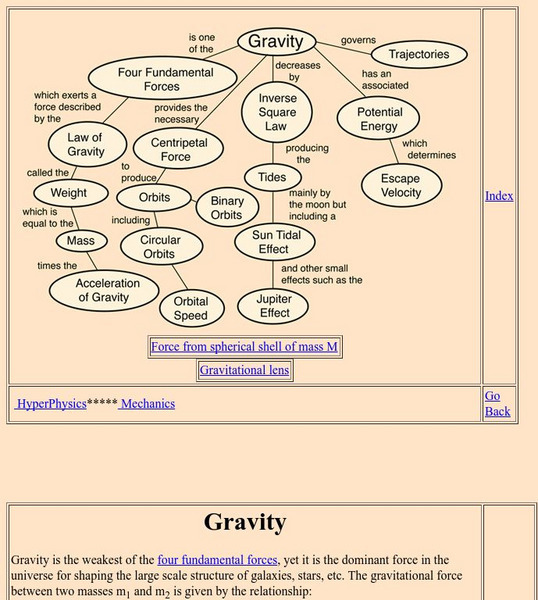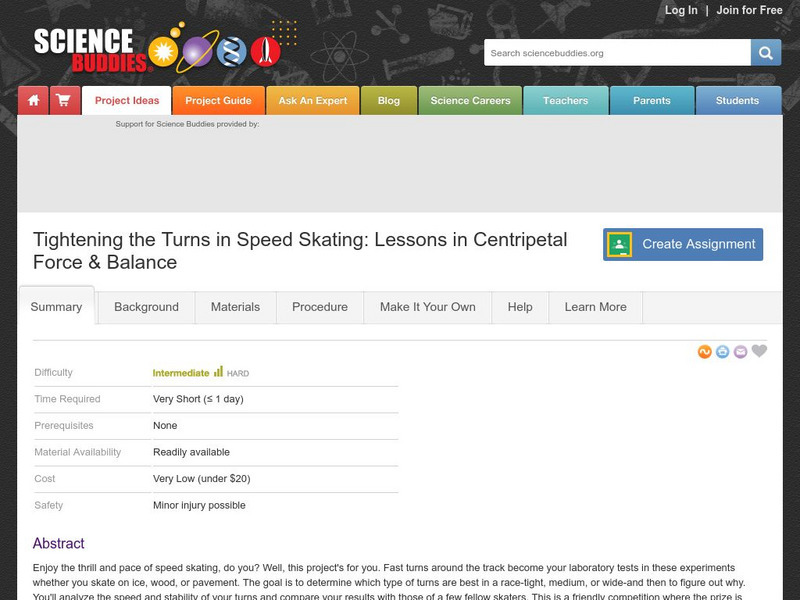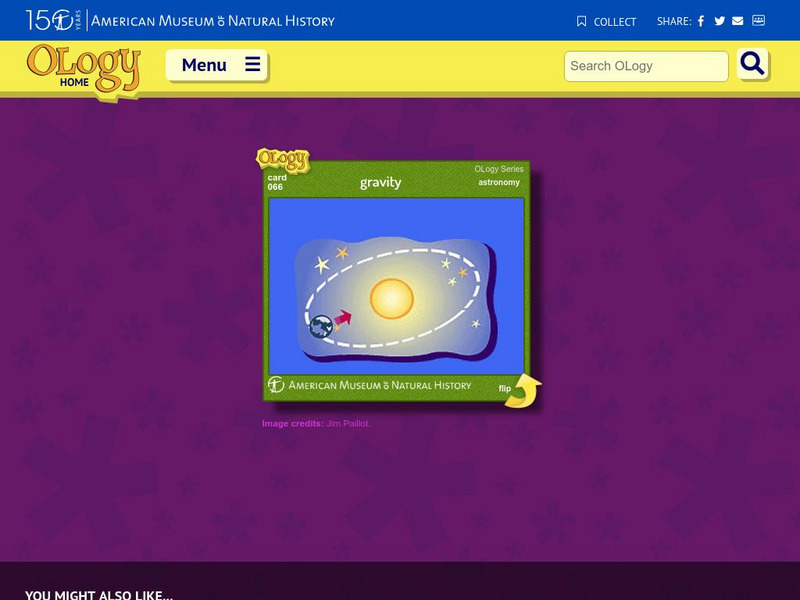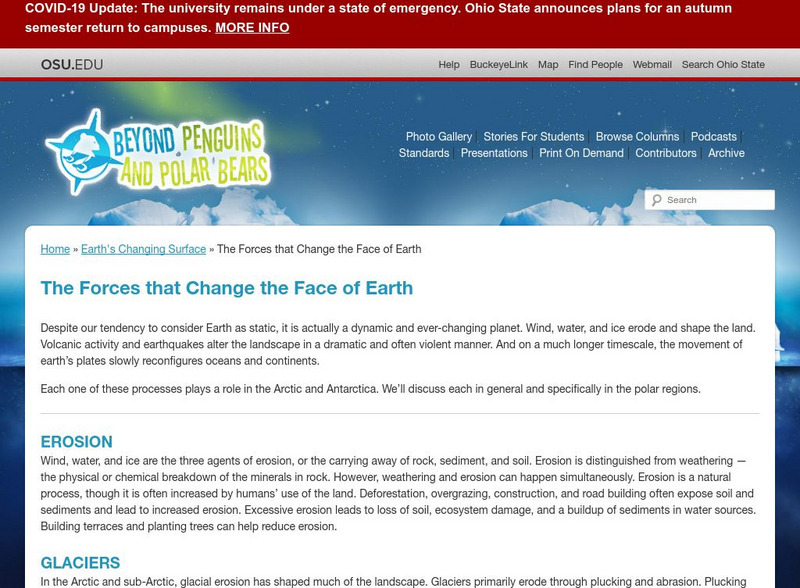Georgia Department of Education
Ga Virtual Learning: Physical Science: Force and Motion
In this student-paced module, students apply Newton's Laws of Motion to everyday life, calculate mathematical relationships involving force and motion using algebraic formulas, and understand the difference between mass and weight.
Other
Bscs: Forces and Motion Content Background Document
In this document, we will try to answer a fundamental question of physical science, "Why do things start to move, slow down, speed up, stop moving or change direction?" In answering these core questions we can develop concepts that can...
Science Struck
Science Struck: A Comprehensive List of All the Physics Formulas
Provides a long list of physics formulas for easy reference.
University of Colorado
University of Colorado: Ph Et Interactive Simulations: My Solar System
An interactive simulation that teaches about motion, acceleration, and velocity by allowing students to build their own solar system and watch the effects of gravitational pull and how that changes with initial position, velocity, and...
NASA
Nasa: The Space Place: Orbits 'R' Us
Learn about how Earth orbits the sun and how satellites orbit the Earth. Discover the different types of satellites such as GOES and POES and what they are used to monitor.
TeachEngineering
Teach Engineering: The Power of Mechanical Advantage
Students learn about the mechanical advantage offered by pulleys in an interactive and game-like manner. By virtue of the activity's mechatronic presentation, they learn to study a mechanical system not as a static image, but rather as a...
Physics Aviary
Physics Aviary: Visualizing Forces on an Incline
This program gives students a visual representation of the forces on a block that is on an inclined plane. The students can watch how force gravity, force normal, and force friction change as the angle of the plane changes. Students can...
Science Education Resource Center at Carleton College
Serc: Investigating Gravity: Predicting Time to Hit the Ground
Students will drop and shoot horizontally "Nerf" balls from a variety of known heights then record the amount of time it takes for the ball to hit the ground for each trial. They will plot height vs. time data and create a trend line for...
TeachEngineering
Teach Engineering: Forces and Graphing
This activity can be used to explore forces acting on an object, to practice graphing experimental data, and/or to introduce the algebra concepts of slope and intercept of a line. A wooden 2x4 beam is set on top of two scales. Students...
University of St. Andrews (UK)
University of St. Andrews: General Relativity
A somewhat labored but thorough explanation of general relativity, beginning with Aristotle. Many links to the personalities connected to the article.
TeachEngineering
Teach Engineering: The Claw
Students learn about gear ratios and power by operating toy mechanical cranes of differing gear ratios. They attempt to pick up objects with various masses to witness how much power must be applied to the system to oppose the force of...
Khan Academy
Khan Academy: Particle Systems With Forces
Applying the forces of wind and/or gravity to a particle system so that the system can apply force to all individual particles. In addition, adding a repeller where all the force vectors have a different direction is illustrated.
Khan Academy
Khan Academy: Newton's Law of Gravitation Review
Review the key concepts, equations, and skills for Newton's law of gravity, including how to find the gravitational field strength.
PBS
Pbs Learning Media: Why Doesn't the Moon Fall Down?
In this animated video segment adapted from NASA, astronomer Doris Daou explains how the forces of speed and gravity keep the moon in a constant orbit around Earth. [1:36]
Open Curriculum
Open Curriculum: Gravity
This article helps students understand and apply the concept of gravity and Newton's Laws.
NASA
Nasa: Newton's Theory of "Universal Gravitation"
This site, which is provided for by NASA, discusses the thinking which led Newton to understand universal gravitation.
Georgia State University
Georgia State University: Hyper Physics: Gravity
Gravity as a fundamental force is explained and an equation for universal gravitation is given.
Physics Classroom
The Physics Classroom: Cavendish and the Value of G
A short description of how Cavendish measured the value of G - the universal gravitation constant and supported Newton's theory. Illustrated.
Science Buddies
Science Buddies: Tightening the Turns in Speed Skating
Fast turns around the track can become your laboratory tests in these experiments, whether you skate on ice, wood, or pavement. The goal is to determine which type of turns are best in a race - tight, medium, or wide - and then to figure...
NASA
Nasa: The Space Place: What Is Gravity Really?
What is known about gravity? Find out Einstein's thoughts on gravity in a brief overview of this mysterious force.
American Museum of Natural History
American Museum of Natural History: Ology: Gravity
Flip the card, and learn about gravity.
Khan Academy
Khan Academy: The Buoyant Force Does Not Get Smaller as You Sink
This article explains the buoyant force using a submarine as an example. It also discusses what determines the size of the buoyant force using a formula, and explains decompression sickness better known as the bends.
Ohio State University
Beyond Penguins and Polar Bears: The Forces That Change the Face of Earth
Learn how different types of Earth processes change Earth's surface.
Ducksters
Ducksters: Physics for Kids: Gravity
Kids learn about the science behind gravity, the mysterious force of planet earth including why it is important, what is weight, and fun facts. What is gravity?
Other popular searches
- Calculating Force of Gravity
- Force of Gravity Formula
- Force of Gravity Photos
- Force of Gravity Lessons
- Force of Gravity Powerpoint



